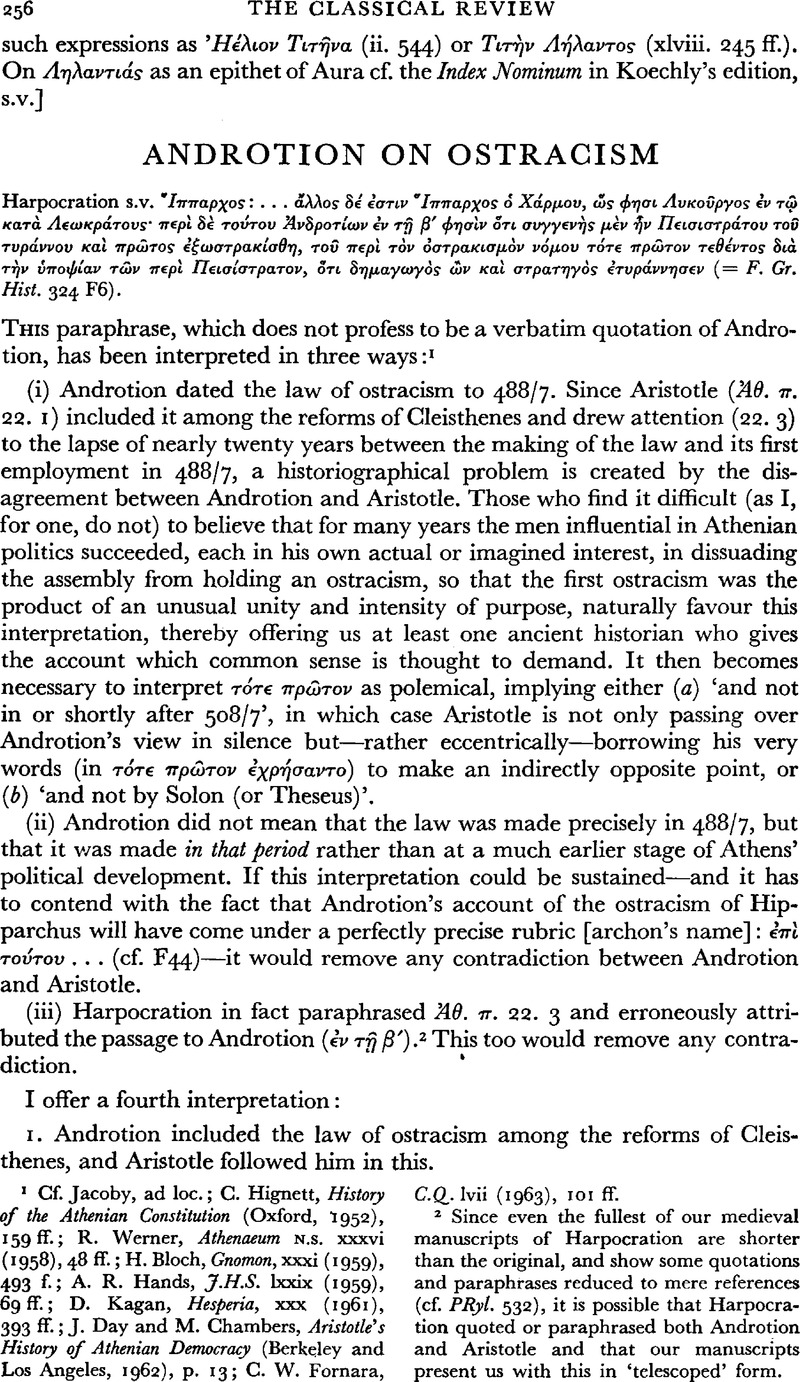Published online by Cambridge University Press: 27 February 2009

page 256 note 1 Cf. Jacoby, ad loc; Hignett, C., History of the Athenian Constitution (Oxford, 1952), 159 ff.Google Scholar; Werner, R., Athenaeum N.S. xxxvi (1958), 48 ff.Google Scholar; Bloch, H., Gnomon, xxxi (1959), 493 f.Google Scholar; Hands, A. R., J.H.S. lxxix (1959), 69 ff.Google Scholar; Kagan, D., Hesperia, xxx (1961), 393 ff.CrossRefGoogle Scholar; Day, J. and Chambers, M., Aristotle's History of Athenian Democracy (Berkeley and Los Angeles, 1962), p. 13Google Scholar; Fornara, C. W., C.Q. lvii (1963), 101 ff.CrossRefGoogle Scholar
page 256 note 2 Since even the fullest of our medieval manuscripts of Harpocration are shorter than the original, and show some quotations and paraphrases reduced to mere references (cf. PRyl. 532), it is possible that Harpocration quoted or paraphrased both Androtion and and Aristotle and that our manuscripts present us with this in ‘telescoped’ form.
page 257 note 1 Gossen's argument for the first century A.D. (R.E. vii, col. 2414) is now weakened by the evidence of POxy. 2192, which points to the second century (cf. Turner, E. G., J.E.A. xxxviii [1952], 91 f.Google Scholar, and Hemmerdinger, B., R.É.G. lxxii [1959], 107 ff.).Google Scholar